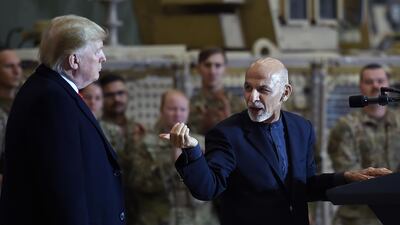This weekend marked the 31st anniversary of the Soviet withdrawal from Afghanistan. Rather than celebrate the occasion, Afghans spent the weekend nervously awaiting news regarding the withdrawal of another global power from their territory.
The US has spent nearly two decades in Afghanistan, fighting the Taliban militant group and helping the central government in Kabul rebuild its country. After over a year of closed-door negotiations, it looks as though a deal between the US and the Taliban might finally see the light of day, and pave the way for the former to pull out of a war that has exhausted the American public.
There have been many false starts over the 10 rounds of negotiations that have led to this point. Ceasefires were announced and abandoned, summits arranged and cancelled, and trust accumulated only to deteriorate.
Most of the missteps are attributable to the perverse incentives of the Taliban. There has been little strategic motivation for the group’s commanders to stop their bloodshed. (Although, not shedding the blood of innocent civilians should be motivation enough.) They have the military advantage, whereas ceasefires only seem to result in their foot-soldiers abandoning their posts.
Nonetheless, some reprieve from battle is said to be a core part of the forthcoming deal – the full details of which are only partially being released until it is signed on February 29.
From that day, a clock will start ticking. There will be a week-long semi-ceasefire, in which the Taliban will “greatly reduce” violence against American and Afghan forces throughout the country. Acknowledging that a full ceasefire would not be possible, the “reduction of violence” will have to suffice.
According to US officials, the deal will also incorporate a precise definition of what constitutes “violence”, allowing room for error or limited rogue attacks to occur without broader escalation. Such incidences will be dealt with through the establishment of a US-Taliban communications channel.
A successful “ceasefire” will then lead to the initiation of 10-day talks between Taliban and Afghan leaders, where finding a way to make it permanent will top the agenda.
The implication is that Kabul and the Taliban will need to find a long-term political settlement. The outcome of these discussions will be the real peace deal. That is, if they are successful, and if there emerges a clear definition of what success means.
If there is a parallel to be drawn between Moscow’s withdrawal in 1989 and Washington’s today, it is that there is a government in Kabul built on foreign assistance and fearful of what comes next.
These fears are justified. To Kabul, success means ensuring that the tens of thousands of Afghan soldiers who have lost their lives in the last two decades did not do so in vain. It also means a continuation of the democratic principles codified in Afghanistan’s constitution. Afghan civil society leaders, with strong support from President Ashraf Ghani and European nations, are desperate to safeguard gains in human rights and the rule of law.
There are many ground-breaking announcements expected in the forthcoming deal. The Taliban have never agreed to a cessation of hostilities this comprehensive before. They have also never agreed to speak to the Afghan government before. These breakthroughs are evidence that false starts are worth building on; they could eventually lead to bigger steps forward.
But the Taliban has plenty of opportunity to exploit the present situation. They could conduct attacks against Afghan soldiers and explain them away to the US, which in turn may use a signed agreement as political cover to withdraw quickly and recklessly.
The Taliban could also treat the deal as a transition away from a war with the US towards a strictly civil war between itself and Kabul.
Such opportunism would represent the height of cynicism, and demonstrate a lack of seriousness on the part of the Taliban. A heavy price for any betrayal of good faith must be made clear in the details of the agreement. If the Taliban wants to partake in meaningful discussions about Afghanistan’s future, the measure of their worthiness to do so will be their ability to put their weapons to rest.

